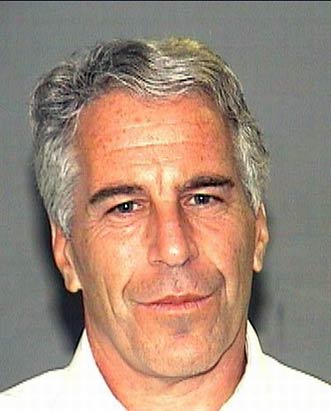Afternoon Briefs: Controversial judge transferred; billionaire charged with trafficking minors

Jeffrey Epstein in 2006. Photo from the Palm Beach County Sheriff’s Office via Wikimedia Commons.
• An administrative law judge who refused to watch an LGBTQ sensitivity training video has been transferred from Texas to Tennessee after resolution of his suit seeking to block discipline. The controversial judge, Gary Suttles, had said the video didn’t comport with his religious views. Said one concerned lawyer for claimants, “We would truly like to know why this ALJ has been foisted on the people of Tennessee.” (The Tennessean)
• Billionaire financier Jeffrey Epstein has been indicted on federal sex trafficking charges that accuse him of enticing girls as young as age 14 to visit his homes and engage in sex acts. Prosecutors said they found nude or sexually suggestive photos of hundreds and possibly thousands of young women in a search of Epstein’s Manhattan townhouse. He pleaded not guilty. His lawyer called the case an attempted “do-over” after criticism of prosecutors’ handling of a previous case against Epstein that ended with a nonprosecution agreement. (The Washington Post, the New York Times)
• Your driver’s license photo may be scanned by the FBI and immigration authorities without your knowledge or consent. Millions of Americans’ photos have been scanned in facial recognition searches. (The Washington Post)
• The Missouri Office of Chief Disciplinary Counsel is seeking to hold a North Kansas City immigration lawyer in criminal contempt for continuing to practice law after his suspension. The lawyer, 78-year-old Allan Bell, is accused of telling potential clients to come to his office after hours so it wouldn’t look like he was conducting business. Bell’s lawyer said his client was winding up his law practice, and the late hours weren’t unusual. (The Kansas City Star)
• After a client’s drug death, an Illinois criminal defense lawyer will no longer represent accused drug dealers. Ottawa lawyer Eric Miskell is so incensed that he is asking the state and U.S. government to make the sale of illegal opioids an act of domestic terrorism. One law professor says the idea is a stretch. (The Chicago Tribune)
• Kentucky’s death penalty protocol is unconstitutional because it doesn’t explicitly prevent the execution of people who are mentally disabled, a state court judge has ruled. Franklin Circuit Judge Phillip Shepherd said last week the protocol is flawed because it would allow executions if a person with mental disabilities declines further appeals. (The Louisville Courier Journal)



